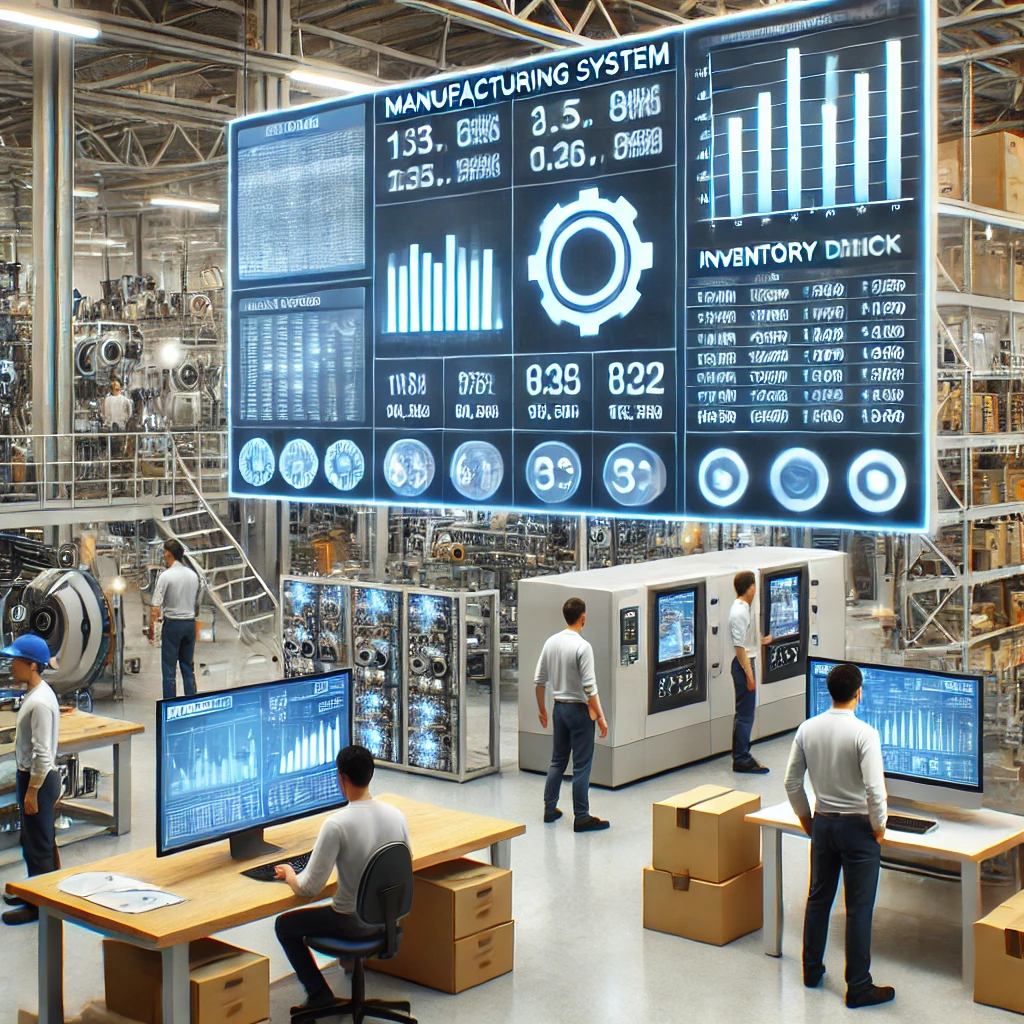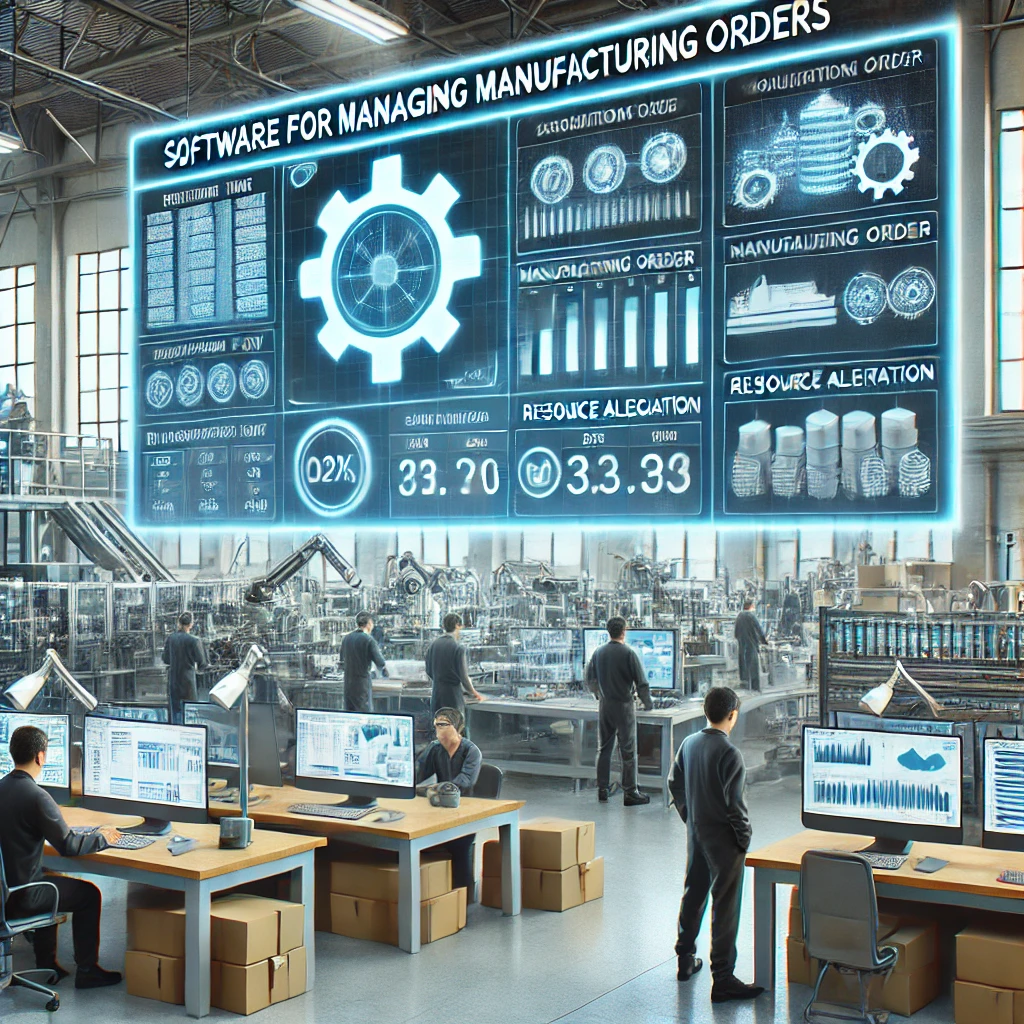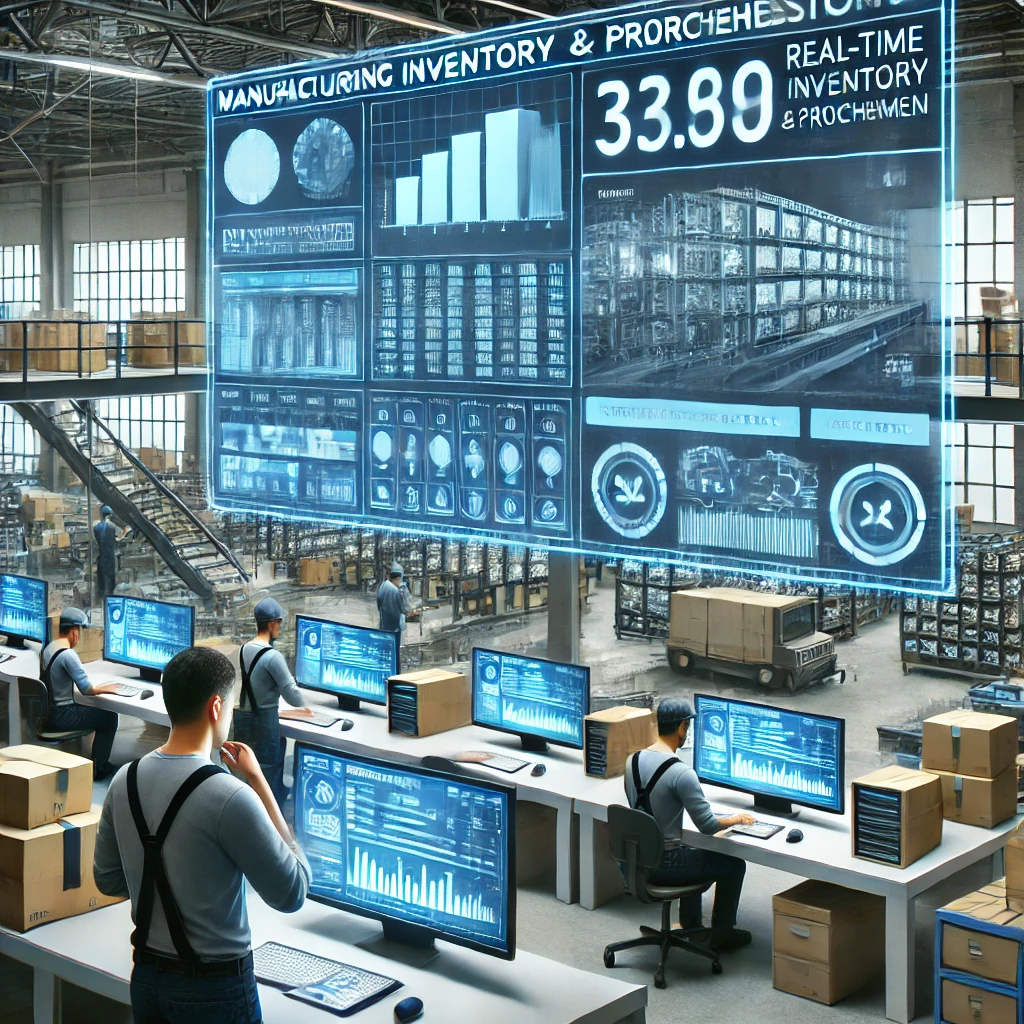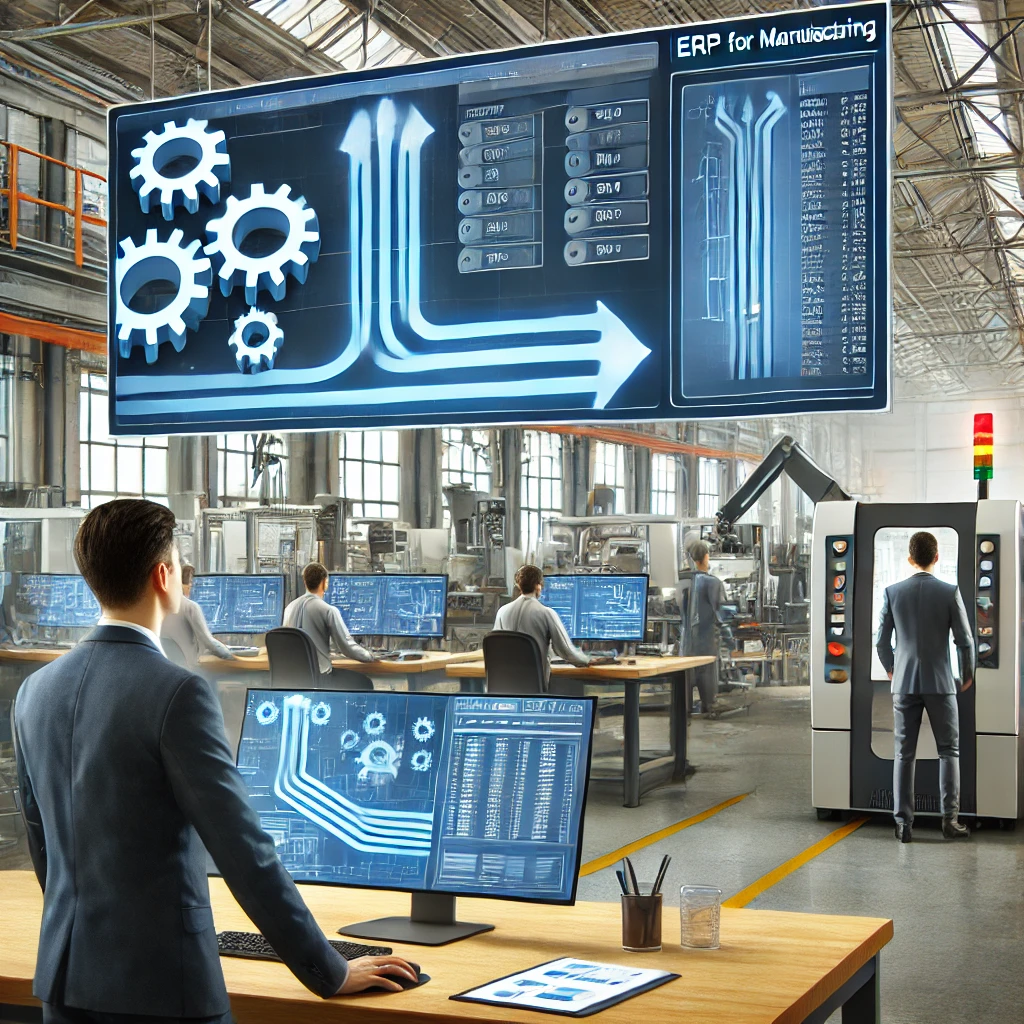Manufacturing businesses today face a range of complex challenges—from managing intricate production schedules and tracking inventory to coordinating suppliers and controlling costs. To thrive in such a dynamic environment, manufacturers need a comprehensive solution that streamlines operations and improves decision-making. That’s where an ERP System for Manufacturers comes in.
An ERP system integrates all the critical functions of a manufacturing business into a single platform, providing real-time data and insights that empower manufacturers to run more efficiently, reduce waste, and boost profitability.
In this article, we’ll explore how an ERP System for Manufacturers works, its key features, and why it’s an indispensable tool for manufacturers aiming to stay competitive.

What is an ERP System for Manufacturers?
An ERP (Enterprise Resource Planning) System for Manufacturers is a software solution designed to manage and automate various functions within a manufacturing business, including production planning, inventory management, procurement, finance, human resources, and quality control. By integrating all these processes into one system, an ERP helps manufacturers streamline their operations and make informed decisions in real time.
With an ERP System for Manufacturers, you can:
- Automate production scheduling and resource allocation.
- Monitor inventory levels in real time across multiple locations.
- Track production costs and improve budget accuracy.
- Coordinate supply chains and vendor management seamlessly.
- Ensure compliance and quality control with detailed tracking.
ERP systems empower manufacturers with the visibility and control they need to run efficient and profitable operations.
Why Manufacturers Need ERP Systems
In today’s fast-paced manufacturing landscape, manual processes are no longer enough to keep up with rising demand, growing complexity, and the need for real-time decision-making. Here’s why an ERP System for Manufacturers is essential:
1. Streamlined Operations
ERP systems automate repetitive tasks and integrate data from various departments, ensuring that all processes run smoothly and in sync. This reduces the risk of delays, errors, and inefficiencies, leading to more streamlined operations.
2. Improved Decision-Making
With access to real-time data on everything from production to inventory and costs, manufacturers can make better-informed decisions quickly. An ERP system provides the insights needed to optimize production, manage resources, and improve profitability.
3. Enhanced Cost Control
An ERP system helps manufacturers track costs related to materials, labor, and overhead, giving them greater control over their budgets. With detailed cost analysis, manufacturers can identify areas where savings can be made, reducing waste and improving margins.
4. Better Collaboration
By integrating data from all departments into one platform, an ERP system fosters better communication and collaboration. Everyone from production managers to finance teams works from the same data, reducing miscommunication and improving overall efficiency.
At Syncratech, we offer tailored ERP systems for manufacturers, designed to meet the specific needs of your business. Visit our homepage to learn more about how our ERP solutions can transform your operations.
Key Features of an ERP System for Manufacturers
When choosing an ERP system, manufacturers should look for features that address their specific operational needs. Here are some of the key features that make an ERP system indispensable for manufacturing businesses:
1. Production Planning and Scheduling
An ERP system automates production scheduling, ensuring that resources such as labor, materials, and machinery are allocated efficiently. It also adjusts production plans in real time to respond to changes in demand or material availability.
2. Inventory Management
ERP systems provide real-time visibility into inventory levels, allowing manufacturers to monitor stock across multiple locations. With automated reordering, manufacturers can avoid stockouts and overstocking, improving overall supply chain efficiency.
3. Cost Tracking and Budgeting
With detailed cost tracking, an ERP system helps manufacturers monitor expenses related to production, labor, and materials. This allows for more accurate budgeting and ensures that production remains cost-effective.
4. Supply Chain Management
Manufacturers rely heavily on their supply chains. An ERP system provides full visibility into procurement, supplier performance, and logistics, ensuring that materials are delivered on time and production runs smoothly.
5. Quality Control
Maintaining product quality is critical to the success of any manufacturing business. An ERP system tracks quality control metrics throughout the production process, ensuring that products meet industry standards and customer expectations.
How Syncratech’s ERP System for Manufacturers Can Help
At Syncratech, we understand the unique challenges that manufacturers face when managing complex operations. Our ERP systems are designed to provide manufacturers with the tools they need to optimize production, improve efficiency, and reduce costs.
Here’s how our ERP solutions can help your business:
- Automate production scheduling for faster turnaround times.
- Monitor inventory levels in real time to avoid stockouts and overstocking.
- Track production costs and identify areas for cost reduction.
- Improve supplier relationships through better supply chain visibility.
- Ensure consistent product quality with integrated quality control tools.
Our customized ERP solutions are tailored to your specific needs, ensuring that you get the most out of your system. Visit our homepage to learn more about how we can help your manufacturing business thrive.
Benefits of an ERP System for Manufacturers
Implementing an ERP system offers numerous benefits that can improve every aspect of your manufacturing business. Here are some of the key advantages:
1. Increased Productivity
By automating tasks like production scheduling and inventory management, ERP systems free up time for workers to focus on more value-added activities. This leads to faster production times and higher overall productivity.
2. Reduced Costs
With real-time visibility into costs, manufacturers can identify inefficiencies and reduce waste. ERP systems also help optimize resource allocation, reducing the need for excess labor and materials.
3. Improved Flexibility
ERP systems are designed to adapt to changes in demand, materials, or production schedules. This flexibility allows manufacturers to respond quickly to market fluctuations and remain competitive in a dynamic environment.
4. Better Compliance
ERP systems help manufacturers maintain compliance with industry regulations by tracking quality control metrics, managing documentation, and ensuring that products meet required standards.
FAQs About ERP Systems for Manufacturers
1. How does an ERP system improve efficiency in manufacturing?
An ERP system automates production processes, tracks inventory in real time, and integrates data across departments. This streamlines operations, reduces delays, and ensures that resources are used more efficiently.
2. Can an ERP system help with cost management?
Yes, ERP systems provide detailed cost tracking, allowing manufacturers to monitor expenses and identify areas for cost reduction. This helps manufacturers stay on budget and improve profitability.
3. Is an ERP system suitable for small manufacturers?
Absolutely. ERP systems are scalable and can be customized to meet the needs of businesses of all sizes. Even small manufacturers can benefit from the increased efficiency and cost savings that an ERP system provides.
4. How does an ERP system support supply chain management?
An ERP system provides full visibility into the supply chain, from procurement to logistics. This ensures that materials are delivered on time, suppliers are performing as expected, and production runs smoothly.
Final Thoughts
For manufacturers looking to streamline operations, reduce costs, and improve overall efficiency, an ERP system is the perfect solution. By integrating all critical functions into one platform, ERP systems provide manufacturers with the visibility, control, and data they need to succeed in today’s competitive market.
At Syncratech, we specialize in providing tailored ERP systems for manufacturers that help businesses optimize production, improve supply chain management, and enhance profitability. To learn more about how our ERP solutions can benefit your business, visit our homepage today.



